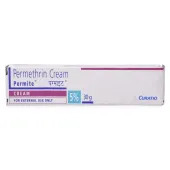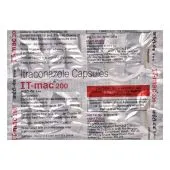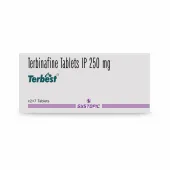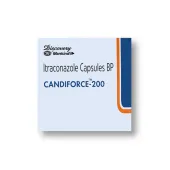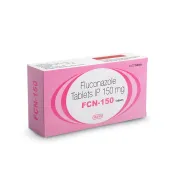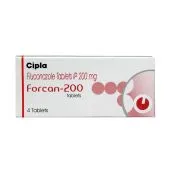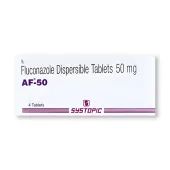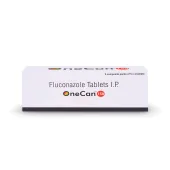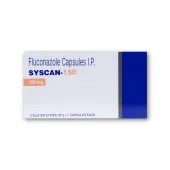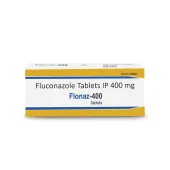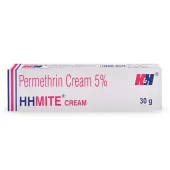Antifungal

-

-
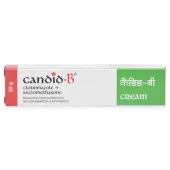
-
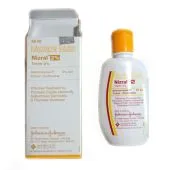
-
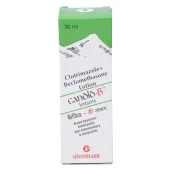 Candid B Lotion 30 ml Beclometasone Topical, Clotrimazole Topical 1 Bottle/s : $8.06As low as $9.64
Candid B Lotion 30 ml Beclometasone Topical, Clotrimazole Topical 1 Bottle/s : $8.06As low as $9.64 -
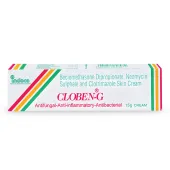 Cloben G Cream 15 Gm Beclometasone Topical + Clotrimazole Topical + Neomycin Topical 1 Tube/s : $7.25As low as $22.14
Cloben G Cream 15 Gm Beclometasone Topical + Clotrimazole Topical + Neomycin Topical 1 Tube/s : $7.25As low as $22.14 -
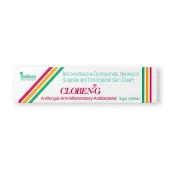 Cloben G Cream 5 Gm Beclometasone Topical + Clotrimazole Topical + Neomycin Topical 1 Tube/s : $3.62As low as $11.58
Cloben G Cream 5 Gm Beclometasone Topical + Clotrimazole Topical + Neomycin Topical 1 Tube/s : $3.62As low as $11.58 -
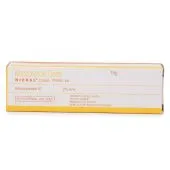
-
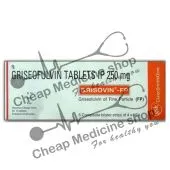
Antifungal
Fungi are all around us. Their microscopic spores can be found on the ground and in the air. Most of these fungi are harmless, however certain types can cause serious infections in some people.Fungal infections can occur anywhere in your body but most commonly, they begin on your skin. Most may cause some discomfort, such as redness and itching on the skin, but they may be easily treated with over-the-counter or prescription medications. Sometimes these skin infections do not heal though and they worsen, possibly triggering sepsis. When a fungus is inhaled and enters your body or is introduced into your body in another way, the risk of infection rises, especially if you have an impaired immune system. People with impaired immune systems are more likely to develop sepsis with fungal infections than people with normal immune systems.
Symptoms Of Fungal Infections
The symptoms of a fungal skin infection depend on the type of fungus that has caused it, and where it is. Fungal rashes can sometimes be confused with other skin conditions, such as psoriasis and eczema.
Fungal skin infections can cause a variety of different skin rashes. Some are red, scaly and itchy. Others may produce a fine scale, similar to dry skin. The fungus can affect just one area, or several areas of your body. If you get a fungal infection of your scalp, you may lose some hair.
You might not need to see your GP if you have a fungal infection. You might be able to manage it at home with medicines that you can buy over-the-counter. If you need advice about medicines, ask a pharmacist. If it gets worse or isn’t helped by over-the-counter medicines, contact your GP for advice.
Types Of Fungal Infections
- Tinea is a type of fungal infection of the hair, skin, or nails. When it's on the skin, tinea usually begins as a small red area the size of a pea. As it grows, it spreads out in a circle or ring. Tinea is often called ringworm because it may look like tiny worms are under the skin (but of course, they're not!).Because the fungi that cause tinea (ringworm) live on different parts of the body, they are named for the part of the body they infect. Scalp ringworm is found on the head, and body ringworm affects any other skin areas.
- Athlete's foot is another type of fungal infection that usually appears between the toes but can also affect toenails and the bottom or sides of the feet.
- Jock itch is a fungal infection of the groin and upper thighs. You might think only men and boys get it, but girls and women can get it, too.
- Candida is a yeast, similar to a fungus. It most often affects the skin around the nails or the soft, moist areas around body openings. Diaper rash in babies can be from one type of candidal infection, as can thrush (white patches often found in the mouths of babies). Older girls and women may develop another form of candidal infection in and around the vagina. This is called a yeast infection.
- Pityriasis versicolor is a mouthful to say. It's a rash caused by a fungus that normally lives on human skin. It can appear over the chest, shoulders, and back, and is common in teenagers.
Prevention
There are steps you can take to reduce your risk of getting a fungal skin infection and stop an infection from spreading. Here are some tips.
- Dry your skin well after you have a bath or shower.
- Wash your socks, clothes and bed linen regularly to remove any fungi.
- Wear clean flip-flops or plastic shoes in communal areas, such as showers, saunas and swimming pools.
- Wear loose fitting clothes made of cotton, or a breathable material that’s designed to keep moisture away from your skin.
- Don’t share towels, hairbrushes or combs as they could be carrying fungi.
- Alternate your shoes every two or three days to give them time to dry out.
- If you have diabetes, keep your blood sugar under control.
- If someone in your family has scalp ringworm, soak pillows, hats, combs or scissors with bleach and water.
If you have a fungal infection you can still go to work, and your child can still go to school. But remember to practise good hygiene to prevent spreading it to others.
Common Medication
Antifungal medicines are available as:
- Topical Antifungals – a cream, gel, ointment or spray you can apply directly to your skin, hair or nails
- Oral Antifungals – a capsule, tablet or liquid medicine that you swallow
- Intravenous Antifungals – an injection into a vein in your arm, usually given in hospital
- Intravaginal Antifungal Pessaries – small, soft tablets you can insert into the vagina
Some common names for antifungal medicines include:
- Clotrimazole
- Econazole
- Miconazole
- Terbinafine
- Fluconazole
- Ketoconazole
- Amphotericin
If you are planning to buy antifungal medicines online, make sure to order only from a reliable online drugstore. Duplicate or fake drugs can react with your body in an adverse manner.
Things to Consider When Using Antifungal Drugs
Before taking antifungal medicines, speak to a pharmacist or your GP about:
- Any existing conditions or allergies that may affect your treatment for fungal infection
- The possible side effects of antifungal medicines
- Whether the antifungal medicine may interact with other medicines you may already be taking (known as drug interactions)
- Whether your antifungal medicine is suitable to take during pregnancy or while breastfeeding – many aren't suitable
You can also check the patient information leaflet that comes with your antifungal medicine for more information.
Side Effects Of Anti Fungal Medicines
Your antifungal medicine may cause side effects. These are usually mild and only last for a short period of time.
They can include:
- itching or burning
- redness
- feeling sick
- tummy (abdominal) pain
- diarrhea
- a rash
Occasionally, your antifungal medicine may cause a more severe reaction, such as:
- An allergic reaction – your face, neck or tongue may swell and you may have difficulty breathing
- A severe skin reaction – such as peeling or blistering skin
- Liver damage (occurs very rarely) – you may experience loss of appetite, vomiting, nausea, jaundice, dark urine or pale faeces, tiredness or weakness

